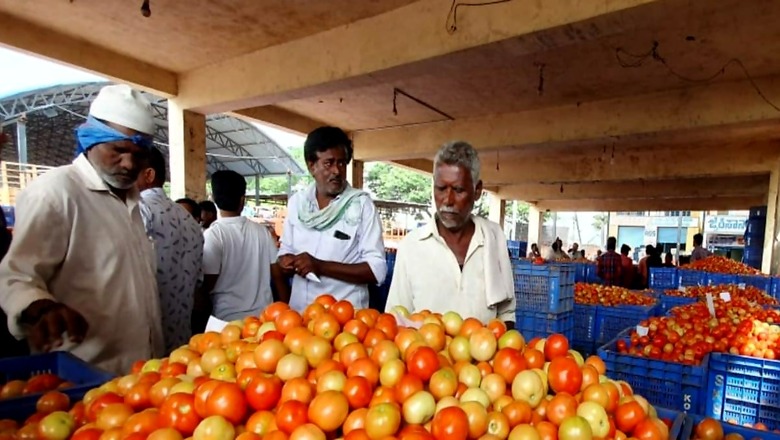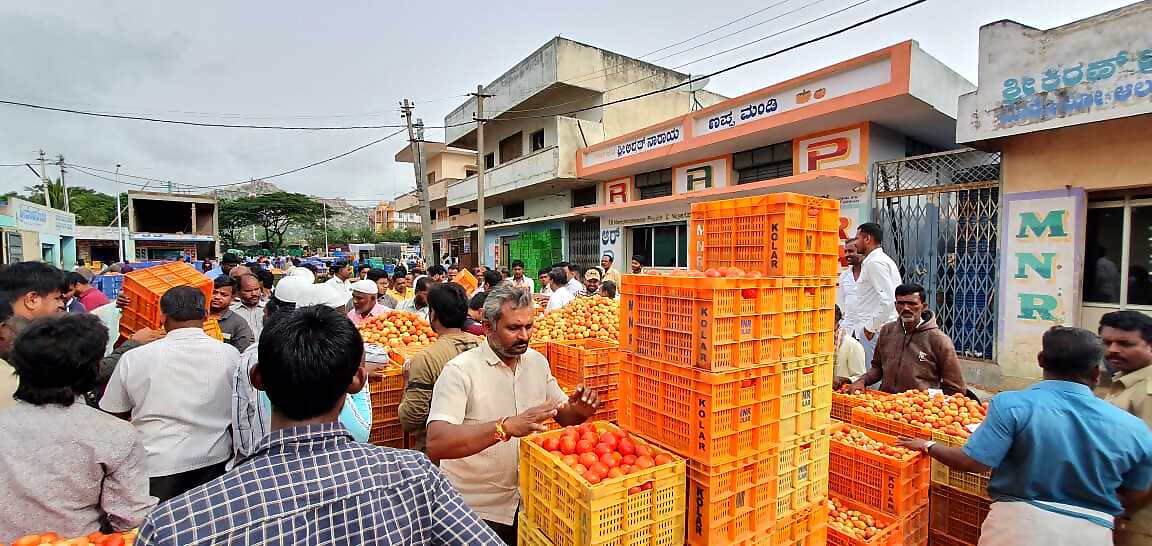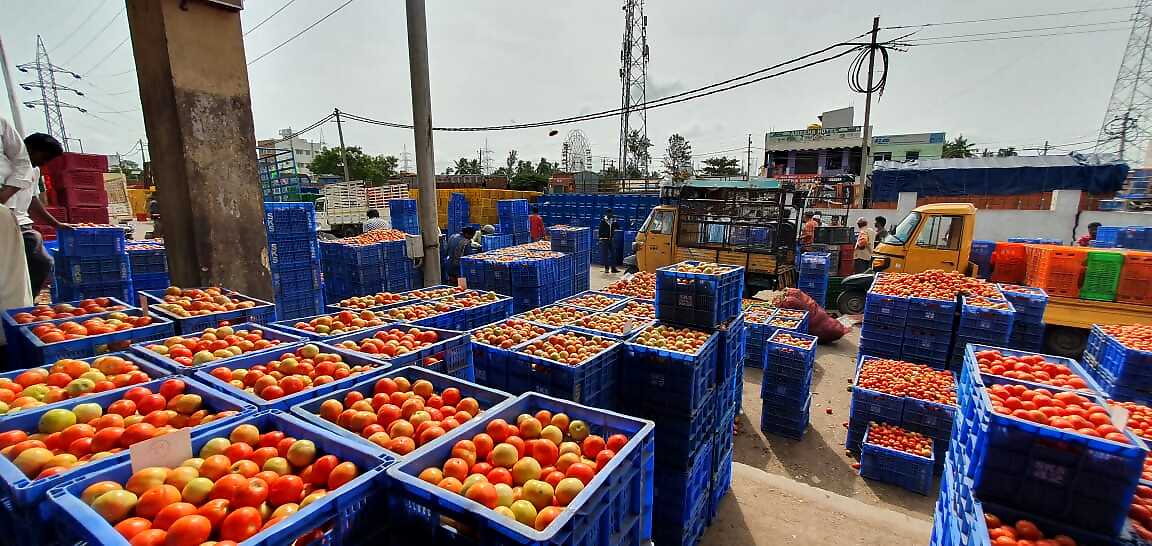
views
It’s not just farmers in Telangana and Maharashtra, but around 15 tomato growers in Karnataka have turned crorepatis after prices of the kitchen staple soared to an all-time high. Karnataka’s Kolar tomato market is the second biggest in the country after Nashik. The district cultivates close to 20,000 hectares of tomatoes with an annual yield of over 12 lakh tonnes annually.
The farmers who are striking it rich with this “little red gold” as they refer to the crop now have had earnings of Rs 80 lakh to Rs 1 crore and above if they own 8 acres and more of land since the time the tomato prices soared.
A crate of 15 kilograms of tomatoes is still selling at between Rs 500 to Rs 2,000, which makes the staple cost close to 20 rupees apiece since the shortage began in mid-June. The initial dearth was due to the white fly and leaf curl disease, but incessant rains have further affected the produce, said a farmer who spoke to News18 over the phone.
Tomato cultivation is an unpredictable business for farmers, as many have to take loans from banks to buy seeds, fertilisers, pesticides, and other equipment to ensure a good crop. Fluctuations in the prices are common, but such a sharp spike in the graph has never been seen before, said officials from Karnataka’s APMC.


On the face of it, farmers seem to be minting money of late, but it is worth considering that they have been facing severe losses over the past three years, explain agriculturists in the Chikkaballapur region.
“In the past financial year, a farmer would get just about Rs 250 to Rs 400 per crate (15 kg), which is around Rs 15 to Rs 20 per kg of the highest quality,” said Prateek K, a farmer from Chikkaballapur. “The smaller and lower quality ‘Goli’ tomatoes go as low as Rs 100 per crate. An average farmer invests more than Rs 2 to Rs 3 lakh for a yield and his returns are almost nil.”
Just like Mahipal Reddy, a tomato grower from Telangana, who raked in Rs 1.8 crore from his sales, another farmer from the Pune district of Maharashtra, Ishwar Gayakar, declared that he had earned Rs 2.8 crore after he sold around 4,000 crates of the crop.
CMR Srinath owns one of the largest mandis or markets in Kolar and speaks about how farmers have finally been getting some returns for their produce after suffering severe losses in the past few years.
A trader-farmer from Mandya, who did not wish to be named, spoke of how there have been instances where a couple of farmers have made close to Rs 4 crore by selling their high-quality tomatoes that are in big demand in states like Haryana, Punjab, Delhi, Madhya Pradesh, Gujarat, and Rajasthan.
“Though much of the top-quality produce is also exported to countries like Bangladesh and Indonesia, the growing demand and shortage in stocks have forced farmers to sell in the Indian markets first. We got close to Rs 1.6 crore from sales since June this year,” he said.
Another farmer-trader from Kolar, Saddam Hussein, added that it takes close to Rs 4 to Rs 5 lakh to cultivate one acre of land and many of the growers have taken loans.
“Those who have borrowed over Rs 20 lakh are looking to repay their loans with the returns they have been getting from the sale of tomatoes. It is also a fact that the farmers are slightly wary of putting out details of their produce in public for fear of looters who have attacked tomato trucks and markets,” he said.
Another Kolar-based farmer, Chandru, who lost more than half of his tomato yield to the leaf curl virus has had some good luck. His brother’s farm of around 9 acres had a good yield and was not affected much as they used the required insecticide to curb the problem. They made close to Rs 98 lakh in the last two months.
“We managed to earn close to Rs 10 to 15 lakh per acre. After deducting the money on various farming-related expenses and repaying a major part of our loans, we are left with around Rs 25 lakh as profit,” he explained.
Vijaylakshmi, Kolar APMC secretary, told News18 that the rains have further reduced the incoming loads of tomatoes, which has driven the prices higher.
“This situation of high prices may continue for another two months as the tomatoes that are coming into the APMC market now have black spots as the fruit has begun to rot due to moisture from the heavy rains,” she said.



















Comments
0 comment